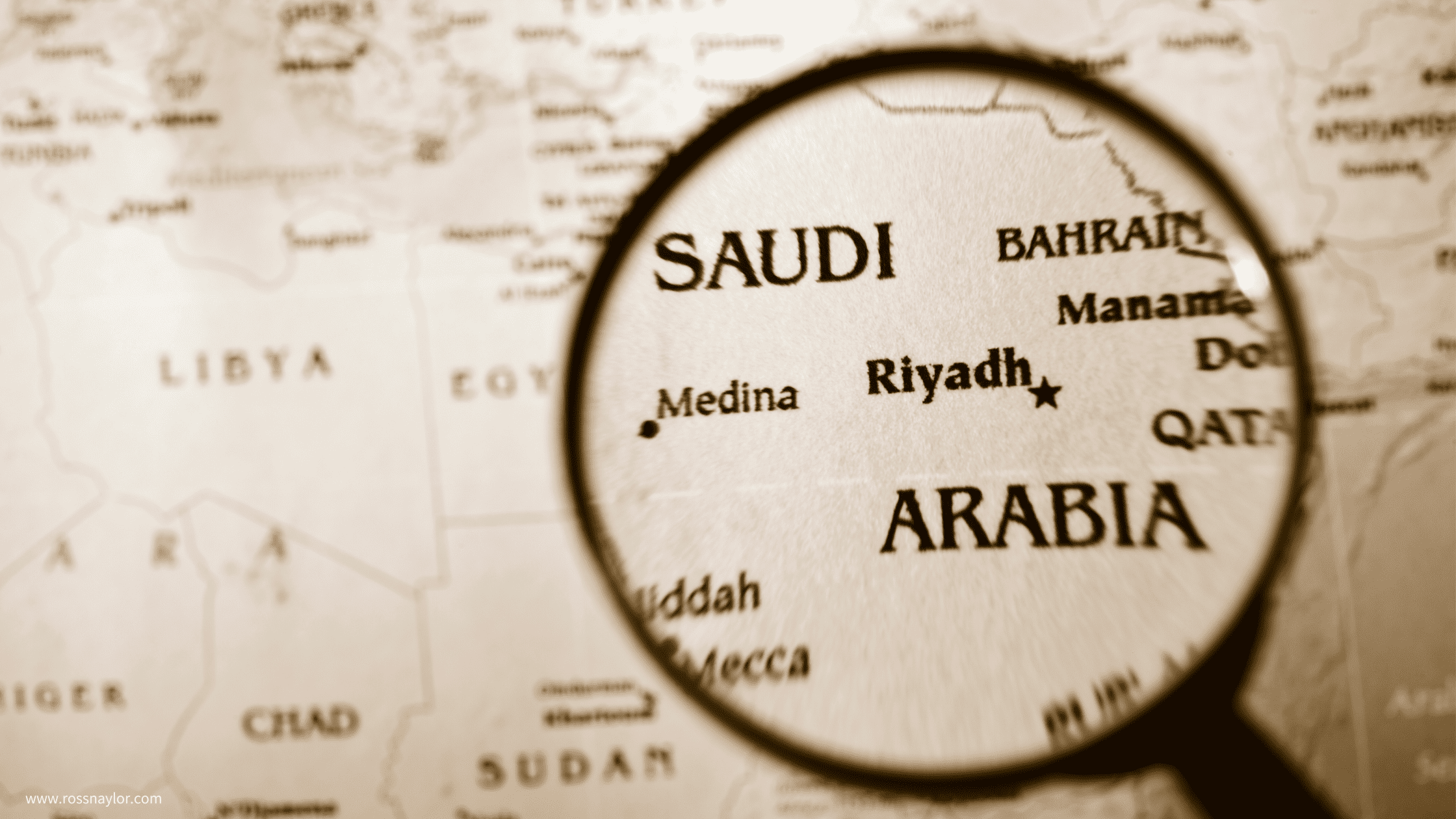
Understanding UK Tax, Retirement & Succession Planning in Saudi Arabia
📚 Financial Guidance for Expats in Saudi Arabia
This series provides clear, expert guidance for British expats living in Saudi Arabia—or planning to move there or return to the UK. From understanding UK tax, pensions, and succession planning in Saudi Arabia to navigating the financial implications of moving in either direction, these resources will help you make informed, confident decisions about your long-term finances.
Expat Saudi Arabia
Navigating UK tax obligations is crucial for British expats moving to Saudi Arabia. Understanding residency status, potential tax liabilities, and available exemptions ensures compliance and financial efficiency. This article delves into the key considerations for UK nationals working in Saudi Arabia, offering insights to help manage their tax responsibilities effectively.
The financial landscape shifts when you move abroad, and understanding these changes is crucial to safeguarding your wealth and ensuring a secure future.
In this blog post, we’ll break down the essentials of managing your UK tax obligations, planning for retirement, and preparing for succession while living as an expat in Saudi Arabia.
UK Tax Considerations for Expats in Saudi Arabia
1. Residency Status and Tax Implications
Your residency status plays a significant role in determining any tax obligations that you may have to HMRC.
The UK operates a Statutory Residence Test (SRT) to establish whether you are a UK resident for tax purposes.
The key factors include the amount of time you spend in the UK, your ties to the UK (such as property, family, or work), and your presence in other countries.
- Non-resident status: If you are deemed a non-resident, you are typically only liable to pay UK tax on your UK income (like rental income) and gains on residential property.
- Resident status: If you remain a UK resident, you’ll be subject to UK tax on your worldwide income, even while living in Saudi Arabia.
Understanding your residency status is critical as it affects how much tax you owe and to which country.

Statutory Residence Test (SRT)
Download my FREE SRT Flowchart
The UK uses the Statutory Residence Test (SRT) to determine whether you are a UK resident for tax purposes. Check your status now . . .
2. Double Taxation Treaty
Saudi Arabia and the UK have a double taxation treaty in place.
Double taxation treaties exist to prevent you from being taxed twice on the same income.
The treaty specifies which country has the right to tax certain types of income, such as pensions, employment income, and dividends.
For example, if you’re employed in Saudi Arabia, the treaty can often reduce or eliminate your UK tax liability on that income.
3. Capital Gains Tax (CGT)
If you sell assets like property, you may be liable for Capital Gains Tax (CGT) in the UK, even if you’re a non-resident.
However, there are exemptions and allowances that can reduce your CGT liability.
For expats, understanding when and how CGT applies is crucial.
Further reading: Guide to CGT Rules for UK Expat Property Owners
4. Temporary Non-Residence Rules
This is also known as the 5-year rule.
You will need to be resident overseas for more than five years in order to fully escape UK Capital Gains Tax (CGT).
If you become resident again in the UK during these five years, any assets sold after leaving the UK will be taxed in the UK in the tax year you return.
This rule caught out the Portuguese footballer Jota, who moved from Glasgow Celtic to Saudi side Al-Ittihad in July 2023.
That move didn’t work out, and by summer 2024, he wanted to switch to another club in the UK.
However, doing so would have meant that the money that he had earned in Saudi Arabia would be subject to UK income tax (mostly at 45%).
He ended up moving to France instead.
Further reading: Navigating the UK Temporary Non-Residence Rules: A Guide for Expats
Retirement Planning for British Expats in Saudi Arabia
1. State Pension
As a British expat, you are still entitled to receive the UK State Pension, provided you have made the necessary National Insurance contributions.
The amount you receive will depend on the number of qualifying years you have accrued (you need to have 35 qualifying years to receive the maximum).
However, it is important to note that while you can claim your UK State Pension in Saudi Arabia, it will not be eligible for the annual inflationary increases (the “triple lock” policy).
This means your pension won’t keep pace with inflation, which will affect your retirement income over time.
You can also continue building your UK State Pension entitlement while living in Saudi Arabia.
If you are employed or self-employed, you should be able to make Class 2 National Insurance Contributions. For tax year 2024/2025, these are £3.45.
Yes, that’s right, sacrifice one Starbucks latte per week and you can maximise your State Pension entitlement for years.
You can find out more about this in my Expat State Pension Guide.
2. Private Pensions
If you have private or workplace pensions in the UK, you can still access these while living in Saudi Arabia, assuming you are age 55 or older.
However, the way you access your pension could have tax implications.
You should also consider the impact of currency fluctuations when drawing your pension in Saudi Arabia, as your income could vary significantly depending on the exchange rate.
It is also worth noting that UK pension payments are usually made net of tax, meaning that you need to go through the rigmarole of applying to HMRC to get the tax refunded.
To avoid this, you can apply for a No Tax code.
This will enable you to receive UK pension payments without tax being deducted at source.
Finally, remember that you can continue saving into a UK pension for the first 5 years of living in Saudi Arabia.
Contributions are capped at £3,600 pa. However, you still get full tax relief, so it is worth doing.
You can find out more here.
3. Qualifying Recognised Overseas Pension Scheme (QROPS)
A QROPS is an overseas pension scheme that meets HMRC’s requirements to receive transfers from UK pension schemes.
They have been a popular choice for expats since their inception in 2006.
However, in the majority of cases, QROPS holders would be better served transferring their pension benefits back to a UK pension scheme.
Further reading: Are QROPS still suitable in 2024?
☕ For the price of a weekly Starbucks Latte, you continue to build an entitlement to the UK State Pension while you are living in Saudi Arabia.
☕ Full UK State Pension is currently £11,973 per annum.
☕ If you wanted to buy an annuity that would give you the same income, you would need a quarter of a million pounds.

Succession Planning for British Expats in Saudi Arabia
1. Wills and Estate Planning
Succession planning ensures that your assets are distributed according to your wishes after your death.
For British expats in Saudi Arabia, having a valid will is crucial, particularly because Saudi law applies Islamic principles of inheritance, which may differ significantly from UK law.
- UK Will: This will cover your UK assets, ensuring they are distributed according to your wishes and UK law.
- Saudi Will: If you have assets in Saudi Arabia, you may need to create a separate will to deal with these. This can prevent complications and ensure that your wishes are respected under local laws.
It’s important to review your will regularly, especially after significant life events like marriage, divorce, or the birth of a child.
Further reading: Global Assets, Local Laws: Navigating Wills Across Borders
2. Inheritance Tax (IHT)
Many expats assume that, once they leave the UK, their estate will be free from UK Inheritance Tax (IHT).
However, even if you’ve been living in Saudi Arabia for years, your worldwide estate could still be on the hook.
To mitigate your IHT liability, you can use various strategies, such as making lifetime gifts, setting up trusts, or utilizing exemptions and reliefs.
Careful planning is essential to protect your estate and ensure that your wealth is passed on to your loved ones as efficiently as possible.
3. Trusts
Trusts can be an effective tool for estate planning, allowing you to manage and protect your assets for future generations.
By placing your assets in a trust, you can potentially reduce your IHT liability and ensure that your wealth is distributed according to your wishes.
There are various types of trusts, each with its own tax implications, so it’s vital to seek advice on which type is best suited to your situation.
The Bottom Line
Managing your UK tax obligations, planning for retirement, and preparing for succession while living in Saudi Arabia requires careful consideration and professional advice.
Each individual’s circumstances are unique, and what works for one person may not be suitable for another.
I specialise in helping British expats navigate these complex financial areas, ensuring that you make informed decisions that safeguard your wealth and provide peace of mind.
Whether you’re planning for retirement, looking to mitigate your tax liability, or preparing your estate for the future, I can help.
Contact me today to discuss your financial planning needs and take the first step towards a secure future.
UK Tax, Retirement, and Succession Planning for British Expats in Saudi Arabia
FAQs
Your UK tax liability is influenced by your residency status as determined by the Statutory Residence Test (SRT). If you’re classified as a non-resident, you’re typically taxed only on your UK-sourced income, such as rental earnings. Conversely, if you’re deemed a UK resident, you’re liable for tax on your worldwide income, including earnings in Saudi Arabia.
Yes, the UK and Saudi Arabia have a double taxation treaty designed to prevent individuals from being taxed twice on the same income. This treaty outlines which country has taxing rights over specific income types, such as pensions and employment income, potentially reducing or eliminating your UK tax liability on Saudi-earned income.
As a non-resident, you may still be subject to UK CGT on the sale of certain UK assets, like property. However, there are exemptions and allowances that might reduce your CGT liability. Understanding the timing and nature of these disposals is crucial to managing potential tax implications effectively.
The Temporary Non-Residence Rules, often referred to as the “5-year rule,” stipulate that if you return to the UK within five years of becoming a non-resident, certain income and gains realized while abroad may become taxable in the UK upon your return. This rule aims to prevent short-term overseas moves solely for tax advantages.
Yes, you can make voluntary National Insurance contributions to maintain or enhance your UK State Pension entitlement. For instance, if you’re employed or self-employed, you may be eligible to make Class 2 contributions, which are relatively low-cost and can help secure your pension benefits.
You can access your UK private or workplace pensions while residing in Saudi Arabia, typically from age 55. However, the method of access can have tax implications, and currency exchange fluctuations may affect the value of your withdrawals. Applying for a No Tax (NT) code can allow you to receive pension payments without UK tax deducted at source.
A QROPS is an overseas pension scheme that meets HMRC’s requirements to receive transfers from UK pension schemes. While they have been popular among expats, recent changes mean that many would be better served by transferring their pension benefits back to a UK scheme. It’s essential to assess the current suitability of a QROPS for your specific situation.
Yes, it’s advisable to have a UK will for your UK assets and a separate will for assets held in Saudi Arabia. Saudi law applies Islamic inheritance principles, which may differ significantly from UK law. Having distinct wills ensures that your assets are distributed according to your wishes and in compliance with local laws.
Even after years of residing in Saudi Arabia, your worldwide estate may still be liable for UK IHT, depending on your domicile status. Implementing strategies like lifetime gifting, setting up trusts, or utilising exemptions and reliefs can help mitigate IHT liability. Recent changes to UK tax rules may also impact IHT considerations for non-domiciled individuals.
Trusts can effectively manage and protect assets for future generations, potentially reducing IHT liability and ensuring wealth distribution aligns with your wishes. Various types of trusts exist, each with distinct tax implications, making professional advice essential to determine the most suitable structure for your circumstances.
Navigating UK tax, retirement, and succession planning as a British expat in Saudi Arabia is complex and requires personalised advice. Consulting with a financial adviser experienced in expatriate issues is crucial to ensure compliance and optimise your financial well-being.

Talk to an Expert
Navigating UK tax, retirement, and succession planning while living in Saudi Arabia can be challenging. No local income tax doesn’t mean you’re off HMRC’s radar – and questions around residency, domicile, pensions, and inheritance need careful, joined-up planning.
I’m Ross Naylor, a UK-qualified Chartered Financial Planner and Pension Transfer Specialist with nearly 30 years’ experience helping British expats and globally mobile families align their UK tax position, pensions, and long-term wealth planning with life in places like Saudi Arabia and the wider GCC.
I firmly believe your location in the world should never be a barrier to expert, impartial, and transparent financial advice you can trust.
Whether you’re deciding how to draw UK pensions tax-efficiently, planning your return to the UK, or coordinating succession and estate planning across UK and Saudi Arabia, I’ll help you understand your options, avoid common pitfalls, and build a clear, practical strategy for the years ahead.
Book a confidential consultation

